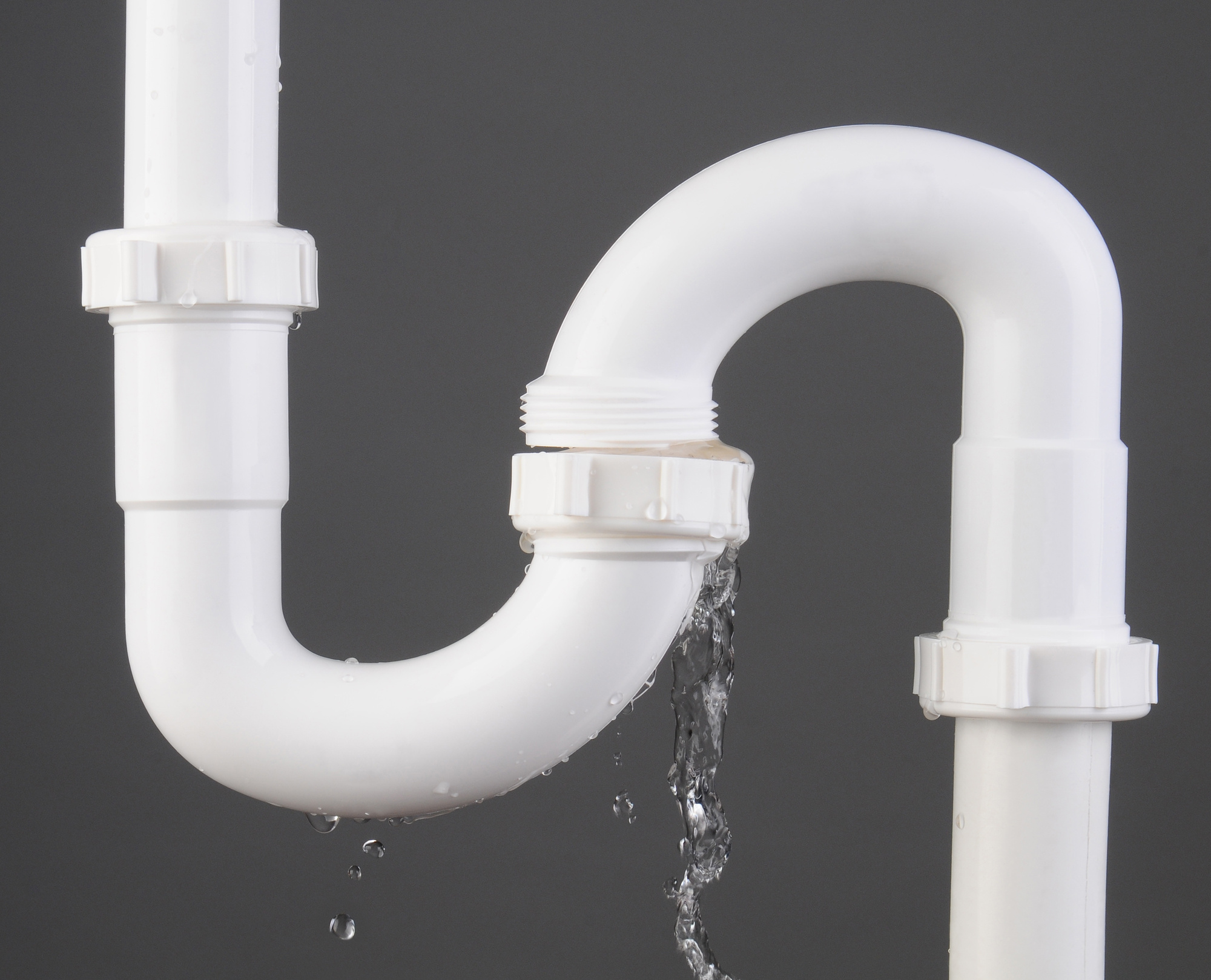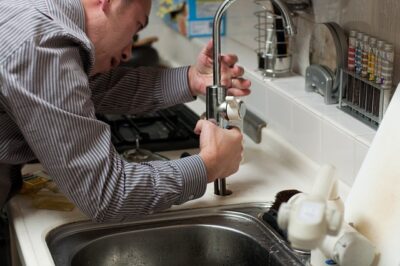As we live our lives and use our appliances, our pipes start to show signs of aging. If you don’t catch the signs and get your plumbing fixed, you can end up with bigger problems. Over time, you could end up with burst pipes, water damage, and even structural damage to your house.
But how do you know if your pipes need to be replaced? How do you identify how old plumbing looks?
It’s easy to overlook aging infrastructure that operates efficiently, even when there are signs water damage is present.
Read on for a rundown of how you can identify old pipes that may require professional help sooner than later.
Plumbing Issues Warning Signs
Plumbing issues are a common and often unexpected problem. Knowing the warning signs ahead of time can help you address potential issues well in advance, saving you money and time.
Water Discoloration
The causes of discolored water come in various underlying issues, including rust, mineral or calcium build-up, and corroding pipes. If you notice water discoloration, you may want to contact a plumbing professional to inspect your plumbing system and determine the cause. You might also be able to solve the problem yourself by installing a water filtration system.
Oddly High Water Bills
If you’re experiencing an oddly high water bill, it may be a sign of a more serious problem. Leaks are often the most common culprit, both inside and outside the home, so it’s essential to be on the lookout for any possible signs of a leak.
Look for water spots on walls, ceilings, or standing water next to a sink or tub. Sewer and water line breaks are also potential plumbing issues you should address.
Strange Plumbing Noises
Clanging and banging noises usually indicate that there is trapped air in the pipes. Gurgling is an indication of slow drainage. On the other hand, a high-pitched squeal means that a part of the plumbing system may be worn out and needs to be replaced.
A whistling sound may indicate a blockage or a loose fitting. Also, running water when there isn’t a tap running is an indication that there is a problem with either the pipe or the sink itself.
Changes in Water Pressure
Low water pressure points to a water leak or a blockage somewhere in your plumbing line. High water pressure can also be an issue and indicate a problem with the control valve. If the water pressure fluctuates, it could indicate an air leak or a defective pressure tank.
Common Plumbing Problems
Bad plumbing problems can arise anytime, and sometimes we don’t realize something is wrong until it’s too late. These problems are often minor yet very annoying. Be aware of the following problems and ensure to prevent them from happening.
Leaks
Leaks often occur due to long-term wear and tear on pipes, rusting, joint fractures, and other problems. When dealing with a leak, it is essential to identify the source of the leak. Careful observation of where the water is coming from and under which pressure it is released will help determine the leak’s size and severity.
Clogs
Clogs occur when there is an obstruction in your plumbing and can be in one of two forms. The first form is a blockage of a single pipe due to hair, grease, and other materials. If this happens, use a plunger or snake to push the obstruction out of the pipe.
The second form of the clog is when water is blocked from flowing freely due to a damaged or warped pipe. In some cases, replacing the pipe or using an enzyme cleaner can help clear the clog.
Frozen Pipes
Pipes can freeze if exposed to temperatures below freezing which can cause a blockage in the water line. Water expands when frozen, and this can lead to cracks or bursts in the pipes. Freezing can also occur if the thermostat is too low.
If homeowners suspect a frozen pipe, they should refrain from using the water line and call a plumber. To thaw a frozen pipe, homeowners should apply low heat to the pipe, such as a hair dryer or hot towels, and avoid using extreme heat as it can damage the pipe.
Sewage Backups
Sewage backups can occur when the sewer line is clogged due to tree roots or a malfunctioning septic system. It can cause widespread damage, leading to loss of property, health risks from contamination of food, and high restoration costs.
It is essential to take steps to prevent sewer backups. This means regularly inspecting the main sewer line and repairing any clogs or other issues.
Recommended Pipes for Plumbing Systems
When choosing pipes for a plumbing system, the decision should be made with care and research. For durability and longevity, copper and other metal pipes are best.
Copper has been used for plumbing systems for centuries and still provides the highest quality of pipes available. It is sturdy, available in a variety of sizes, and resistant to corrosion. However, copper is more expensive than other materials.
PVC (Polyvinyl Chloride) is a cheaper option that is also increasingly used in plumbing systems. PVC is lightweight, resistant to corrosion, and easy to install.
Galvanized steel pipes are reliable and affordable but can rust over time. As for water supply pipes, Crosslinked Polyethylene (PEX) tubing is an excellent option, as it is flexible, vibration-resistant, and corrosion-resistant.
The best pipe for each plumbing system depends on the consumer’s price, preferences, and needs.
Using the Right Tools for Repair Work
Using incorrect tools can make the problem worse and sometimes can’t fix the issue. It can also cause injury to the person attempting to resolve the issue.
Common tools used to address plumbing issues include wrenches, Allen keys, screws, flashlights, plumbers tape, drain cleaners, and plungers.
To use each of these correctly, it is essential to understand the problem and the parts that need to be replaced or fixed. Doing so can help to ensure a successful repair. Also, having the right safety equipment can mean the difference between success and failure.
Always wear safety glasses and gloves when working on plumbing. Following these simple steps can help keep yourself and your home safe during plumbing repairs.
Necessary Maintenance for Old Plumbing Systems
Maintaining your plumbing system is essential for protecting your home from water damage and costly repairs. Start with regular visual checks for wear and tear on pipes, fixtures, and valves, and if uncertain, hiring a licensed plumber is a good choice. Twice a year, use a drain snake to remove any debris and build-up that could be clogging pipes.
Clean strainers and valves to ensure they are functioning properly. Check hoses to ensure they are in good condition. Also, inspect all valves and connections, sealing any leaking connections with the plumber’s putty.
To keep your water heater running safely and efficiently, flush it out every three to five years. Make sure also to test the pressure-relief valve.
You can prevent unnecessary plumbing problems and maintenance costs by taking care of your plumbing system.
When and Why to Hire a Professional Plumber?
Plumbers are responsible for the maintenance, installation, and plumbing repair of systems, and they use specialized tools to carry out the job. Professionals can identify the root cause of an issue in a short time and resolve it in the best way possible.
They are well-trained and have a great understanding of plumbing system designs and codes. They can also advise on the most suitable fixtures and appliances for our budget and home.
Also, a professional plumber can help take preventive measures and implement effective maintenance systems, which help avoid repairs in the future. If you are considering hiring one, consider the best plumbers near me and get the right service to fix our plumbing problems.
Benefits of Upgrading Aging Plumbing Systems
Newer plumbing systems are designed to be more water efficient, saving you money on utility bills. Improved fixtures may also help reduce water waste, reducing the bills. Modern systems also boast better sewer systems, which can protect against backup and reduce your risk of contamination.
You can also find specialized systems for softened or filtered water. With new piping designed to last longer, you won’t have to worry about replacing it nearly as often.
A new plumbing system can also improve the value of your home, making it more marketable if you ever want to sell. Overall, having an upgraded plumbing system in your home can be hugely beneficial.
Getting Your Plumbing System Fixed and Protected
Your home’s health and safety can depend on your plumbing’s condition. Spotting and fixing old plumbing is key to keeping you and your home safe.
If you’re worried about an old or faulty plumbing system, hire a professional plumber to assess the situation and ensure everything is up to code.
Don’t delay! Schedule regular plumbing checks to avoid potential problems before they become bigger.
Check out our other blogs on this site if you find this helpful article in many ways.










